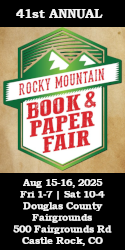The Excellent Foppery of the World
A couple of years ago I heard that a major (and, for their sake, I hope major) manufacturer of toys had recalled a million products on account of their having lead in their paint. When I was in school we spoke of having “lead in one’s pants, but we didn’t worry about our toys. After all, we didn’t lick or suck the toy soldiers; and, if we did, some of us have lived to have forgotten about it. But the 21 Century has brought us, in the lately forgotten phrase of Milton, fresh woods and pastures new, even while virtually destroying even in Kennebunkport, once a rural seaside haven, woods and pastures—especially the new ones. I live on Wakefield Pasture Road, which hasn’t been a pasture for a hundred years, but for twenty years a rather pleasant grove of pines and cedars has been growing around the sewer pumping station at the end of this cul de sac, and last week the town Sewer Department started to cut them down. After three trees had gone, a crotchety neighbor shrieked at the wood-cutters to quit cutting. “Just doing our job,” they claimed with some justice, for they had been told to do it—the trouble with any job.“Can’t see it from my house,” as a Kent School maintenance man wisely used to say, and don’t have to walk the dogs around the cul de sac; but half the grove is gone and the sewer pumping station gleams on the sight of its neighbors like the glimmering landscape of Rosetti’s famous poem, “A fence,” they muttered. “Something there is that doesn’t love a wall” wrote Robert Frost. It gives offense. As this one will, and nobody’ll love it..except the sewer-mongers.
Lynne Truss (Talk to the Hand) has done some of this, and I am not trying to steal her thunder. Indeed not. I’m seeking to augment it. As Dorothy Parker said about cynicism, you can’t keep up with the need for it. I recently received a letter from a local bank regarding a CD account saying that because it had been inactive for two years its miserable assets were about to be forfeit to The State. I know little of such things, but I did know that the whole point of such an account is that it is inactive except that the bank pays interest on it for a while. Stealing on the side, perhaps, fair enough, but no action required of me. Can’t see it from my house. The letter, which made absolutely no sense to me or any of my advisors, was signed by an Assistant Vice President, Customer Care Manager. So, silly me, declining the option of dialing an 800 number (only to be told that my call is important to them but not as important as the 800 others they’re taking at the moment), I drove five miles to the main office of the bank and asked for the Customer Care Department, particularly Ms. Poettini (name changed to protect the absurdly guilty). “Oh, ah, well,” I was told. “They don’t usually see people.”
For such nonsense there is, of course, great literary precedent. There is the popinjay messenger in Shakespeare’s King Henry IV, Part I (albeit the product of Hotspur’s fertile imagination) who claims that “but for these vile guns/ He would himself have been a soldier.” (Aren’t guns, incidentally, an anachronism in 1400, when the action of the play takes place? I don’t know.) Chaucer’s Friar, as he goes about his Christian rounds, steers clear of lepers and beggars, for “Unto swich a worthy man as he / Accorded nat, as by his facultee.? To have with sike lazars aqueyntance.” And there’s the old Mainer who, looking at your disabled vehicle, soberly points out the bright side: the tire is flat only on the bottom. But he—probably—is joking. In my short lifetime we have gone from nice people dealing with customers to Customer Service, which has now degenerated to Customer Care. Drug stores have become pharmacies. Lunch counters have become fast-food lines, sometimes quite long, however fast the food. Waiters have become Servers, as have Waitresses...but there’s now no such thing as a Servant, except (quite rightly) at three times my pension. Would you rather be offered a drink by a Stewardess (or a Steward), or a Flight Attendant? (If you don’t know already, what would you think the phrase “Flight Attendant” meant, anyway!) Doctors have become Care Practitioners. (”There’s something wrong with your knee,” the bone specialist diagnosed. “Come back in three months.” After three months, the crippling pain was a memory, all in my head to begin with, I suppose we must assume, despite the anguished cry from the knee. But somebody cared for five minutes at $25.00 a minute, and I’m not too proud to be grateful for such concern. After all, I was the one with the trouble, unpleasant to examine, not the doctor! He earns his pay. Not my job to justify it. Can’t see it from his house.) Plumbers and Appliance Services, reasonably (I think what they must have to see), have become $65.00 an hour or a portion thereof, while Teachers, if such there be, now have to define themselves at least as Educators, if not as Educative Assistants or Learning Administrators to get a job and do as they are told, whether or not they or their superiors ever learned Milton’s last name. Hardware stores have become Home Improvement Centers, and the little man in the bow tie and suspenders is no longer the obliging clerk I wanted, when I was a child, to grow up to be but, on the other side of the counter, me.
Here in Kennebunkport, it is still possible to buy 6d or 8d nails by the pound...but a request for a screwdriver raises bearded and be-ringed eyebrows. “What next, old man? A hammer? Well, let’s see...I’ll ask the boss...He might remember.” “You’re welcome” has turned into “No problem,” which makes me want to translate “Thank you” into “What’s two plus two, have a good one...and take a guess on that problem, you may need a little help” (sorry, I mean a little “caring”). Somehow we have created a world so miserable that the politeness of my youth has become inadequately non-invasive. “Good morning,” vapid as it may have ever been, is now “How’s it going!” which is stupid and intrusive. I’m trying to stop saying “How are you?” What rude question that has become. Telephone conversations used to involve at least one live voice, but now...What would Emily Dickinson make of “the e-mail from Tunis,/ An easy morning’s ride?” Our clothes and language turn to shreds as we acknowledge the superior power of the technology we embrace without seeing that its loving arms are crushing the stuffing out of us. Oh, well. Can’t see it from my house.
Years ago, when like Dylan Thomas I was easy under the apple boughs, people got sick and sometimes had terrible diseases to which friendly doctors, however sadly, could attach (in the phrase from Shakespeare’s A Midsummer Night’s Dream) a local habitation and a name. Today I received a bill from my Family Practitioner (whom I have known for more than thirty years) for $287.37, after the Insurance had declined to pay for Service 77082, on the ground that “the above procedure does not meet the criteria of medically necessary healthcare as defined in Maine Law (24-A M.R.S.A. Section 4301-A (10A),” look it up, folks. This “benefit determination” helpfully adds: “If your provider (that means, I believe, “doctor”) would like to discuss this determination with out (sic) physician advisor, the provider should contact Anthem Utilization Management.” “Benefit determination”? What benefit? “Medically necessary healthcare”? What is medically unnecessary healthcare”? What the hell is healthcare anyway, if it’s not medically necessary? How else can it be necessary? (I set aside the obvious “psychiatrically,” which is becoming to me increasingly—if not necessarily—attractive.) And why, in the name of the great glittering glories of Golconda, should Maine Law be defining it? Why, if my provider and I can’t? And as for “Utilization Management”? That’s worse than “Customer Care.” I don’t ask what it means, because it doesn’t—can’t— mean anything. It’s the worst perversion of language I’ve seen this week: putting words together to make no sense whatever. If a thousand blind monkeys sat at a thousand typewriters (sorry, I mean “lap-tops” or “ape-mops”) for a thousand years they could not come up with gibber to equal this, bless them. Great festering hordes of Gehenna (which, as you know, was of old the Jerusalem City Dump, in the Valley of Hinnom)!
You well may be wondering, What’s wrong with me? (I forgot to mention that the Insurance Company has “conducted a retrospective review” of my services. Thanks to whatever gods may be, they have not yet done the prospective review” of my illnesses, I.e. healthcare challenges). The diagnoses are relentlessly and coldly specific: I’ve got 773.90 and a double whack of 774.2, not to mention 719.7 and a clear 496. Also 724.2, though about that there seems to be some disagreement among my Providers. The DEXA comes in at $150.00, but at least I’m not pregnant (I must thankfully assume: nobody has told me otherwise, I suppose, but I’m not good with numbers). You don’t want to know about the $45.00 VFA, and I don’t either. I’m only 65. Who says Robert Benchley’s not alive? Only he knows.
It’s taken three months, but the crooks who want to extend the “Warranty” on my automobile have (I hope) subsided. Each message—at least three dozen—swore that this was my final opportunity to bite on this stupid scam. I pressed “2” thrice to no avail (I admit that one of my four telephones has buttons). Finally, I pressed “1” and got a live voice, asking how I was doing, and I told it that it ever called here again I would return the call to spoil its dinner hour in Nebraska...if there is a dinner hour in Nebraska. They called again today, and I spoke as severely as I can. Had I had a few minutes to spare, I’d have replied in Latin, in hendecasyllabics, and you know what that would have meant. “Passer deliciae...” Can’t see it from my house, anyway, and we can’t print what I actually said.
King Lear is a play by Shakespeare that I taught with huge success for a third of a century despite the early and short-lived insistence of a senior colleague, at least three years older than I in 1973, that doing so was ridiculous because teen-agers can’t understand old men. Long since departed from the department, he may have, I hope, withered into the truth, if only via his now-aging daughter whose college room-mate, en secondes noces, he married: nobody understands old age better than an adolescent. Like Judy Collins and Joni Mitchell, I’ve looked on both sides now, and I tell you the truth. In Act I, Scene 2 of King Lear, The Earl of Gloucester’s son Edmund, albeit a villain of magnitude, is the voice of reality when he says:
This is the excellent foppery of the world, that, when we are sick in fortune—often the surfeits of our own behavior—we make guilty of our disasters the sun, the moon, and the stars; as if we were villains on neccesity, fools by heavenly compulsion, knaves, thieves, and treachers by spherical predominance.
The knaves and thieves and treachers who daily ring my telephone in the name of aluminum siding, newspaper subscriptions, trips to the Bahamas (wherever or whatever they may be), public-opinion polls, and a phony warranty offer—not to mention an Original Dink Stover carbide lamp for my bike—are governed by a spherical predominance known to us all, which I shan’t defile these chaste pages by putting into the vernacular. But spherical predominances (attending, as I was once advised by a highly-skilled surgeon, at each end of a Sigmoidoscope) they are indeed, and I am proud to tell them so if they emerge as a live voice. The “push-button” telephone is a tiresome tautology. “Voice-mail” is an obnoxious oxymoron. When the day comes that my arthritic finger can’t dial, you for a lack of exercise won’t be able to pick up, so let’s all say “tomato” and call it quits. In the Sunday Times Book Review for October 7, 2007, Bauman Rare Books, the swellest dealer on the continent (you name the continent), offered a copy of “The Workes of Geoffrey Chaucer, 1551...One of fewer than nine known copies, $55,000.00.” Rare book, I guess: how many fewer than nine known copies can there be? And, which one of them is this one, the one I didn’t buy?
Gazing anew here at this Compaq keyboard that I bought, sacrificing feud, food, and fuel last winter, I read a Warning: “To reduce risk of serious injury, read Safety & Comfort Guide provided with product.” “Product?” This plasticene play-school polymass of bits and bytes is “product”? Reduce risk? Why is there a rrisk? At 65, I should like to elimate (as they say in North Berwick, Maine) any risk. “Serious injury?” Well, naturally, minor injury is to be expected from this 21-Century Contrivance, probably inflicted in helpless rage upon myself by my own hand in response to it, but what “serious injury” or “strange fragrance,” in the words of Oscar Hammerstein II, can “its fruit transmute?” “Comfort”? I think it was Mary Ellen Chase’s Elwood P. Dowd in Harvey who said, “I never studied comfort,” but whoever it was, I didn’t either, and I ask: by what absurd intrusive latter-day standard should I pay for a guide to it? Quivering on the brink of senility and awash, in the words of Matthew Arnold, upon “the vast and naked shingles of the world,” I hear, like Tennyson’s Sir Bedivere, “the ripple washing in the reeds/ And the wild water lapping on the crag.” Since I got out of college I have lived in jail...ironically sharing the same imprisonment that my dismally more successful classmates who thought that their serapes and ear-rings and unshaven shapes and sad sandals, their “loop’d and window’d raggedness” that King Lear would wistifully have afforded them, might save them from. Jail. The nonsense recorded above will never end, now that our language has been beaten blind by our technology, back onto the shadowed wall of Plato’s cave,; and who’s behind that? In the words of an early P.G. Wodehouse song (Sergeant Brue, 1904), “Put me in my little cell.”
Charles E. Gould, Jr. is a retired member of the English department of Kent School, an antiquarian bookseller, and P.G. Wodehouse specialist. He lives in Kennebunkport, ME.


























